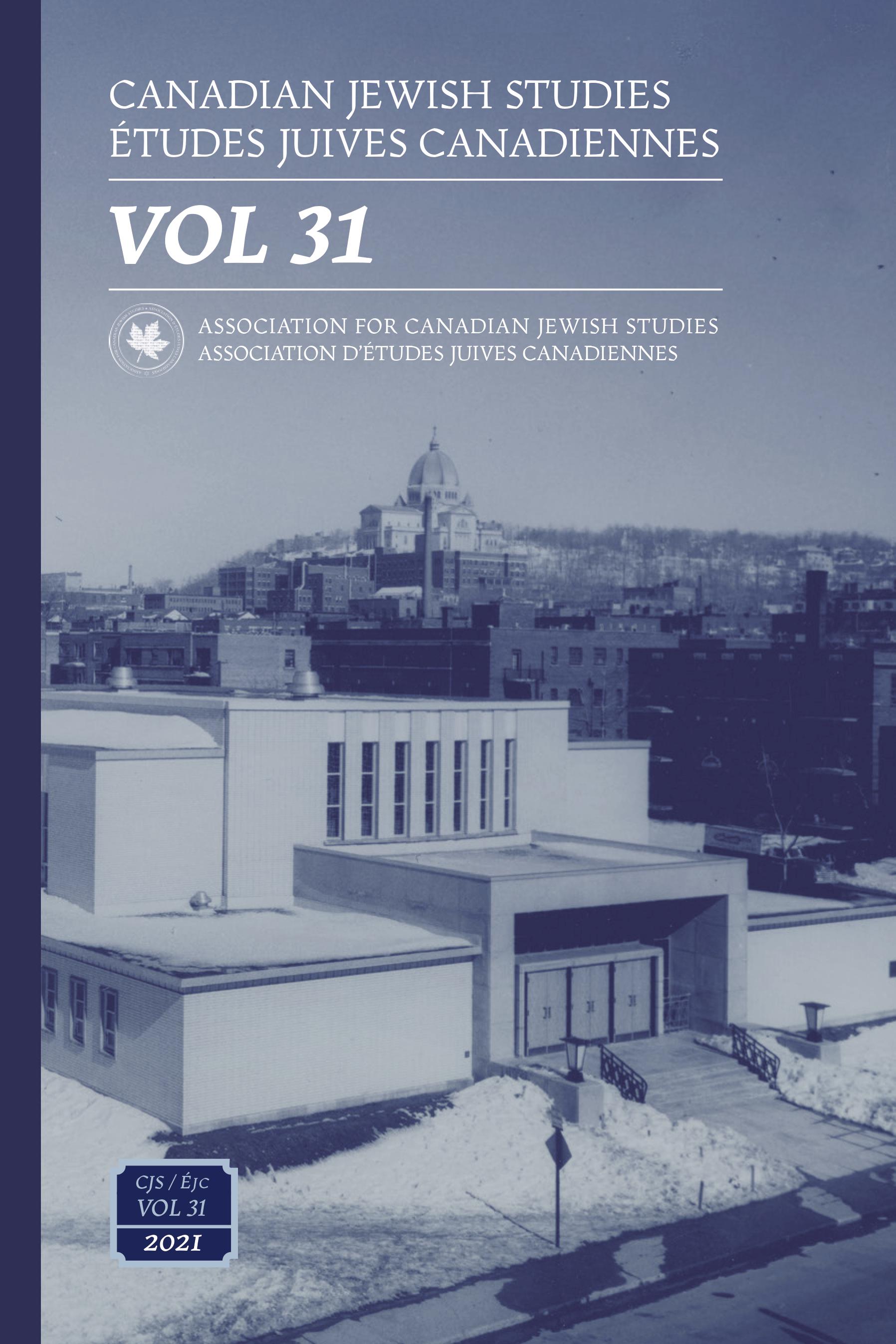“Westmount’s Sinai”: Projecting a Jewish Landscape onto Montreal through Fiction
DOI :
https://doi.org/10.25071/1916-0925.40216Résumé
For Canadian Jewish authors, every peak and every valley, every lake and every island, every forest and every plain, is a potential locus for mythic energy. In this brief article, I wish to offer a glimpse into the implicit means by which Jewish authors project a specifically Jewish landscape onto their surroundings. Through a short study of Chava Rosenfarb’s Edgia’s Revenge and Leonard Cohen’s The Favourite Game, I will explore both authors’ uses of Mount Royal and the Laurentian Mountains as sacred spaces in the tradition of earlier Jewish stories involving mountains and wilderness. These similarities are especially poignant when we consider Cohen and Rosenfarb’s very different experiences of being Jewish in the world—one a wealthy uptown Jew from Montreal and the other a survivor of the Holocaust.
Pour les auteurs juifs canadiens, chaque sommet et vallée, chaque lac et île, chaque forêt et plaine, est un lieu potentiel d’énergie mythique. Dans ce bref article, je souhaite offrir un aperçu des moyens implicites par lesquels les auteurs juifs projettent un paysage spécifiquement juif sur leur environnement. À travers une brève étude d’Edgia’s Revenge de Chava Rosenfarb et The Favourite Game de Leonard Cohen, j’explorerai les usages par les deux auteurs du Mont Royal et des Laurentides en tant qu’espaces sacrés dans la tradition d’histoires juives antérieures sur les montagnes et la nature. Ces similitudes sont particulièrement probantes lorsque nous considérons les expériences très différentes de Cohen et Rosenfarb de vivre leur judéité — l’un un juif nanti élevé à Westmount et l’autre une survivante de l’Holocauste.
Téléchargements
Publié-e
Comment citer
Numéro
Rubrique
Licence
Canadian Jewish Studies/ Études juives canadiennes is a journal dedicated to the open exchange of information; therefore the author agrees that the work published in the journal be made available to the public under a Creative Commons Attribution-Noncommercial-No Derivative Works 4.0 Unported License. The publisher (Association for Canadian Jewish Studies / Association d'études juives canadiennes) recognizes the author's intellectual property rights; authors retain copyright over their work. The author grants the publisher first serial publication rights and the non-exclusive right to mount, preserve, and distribute the intellectual property. The journal is digitized and published on the open access website http://pi.library.yorku.ca/ojs/index.php/cjs/index.







